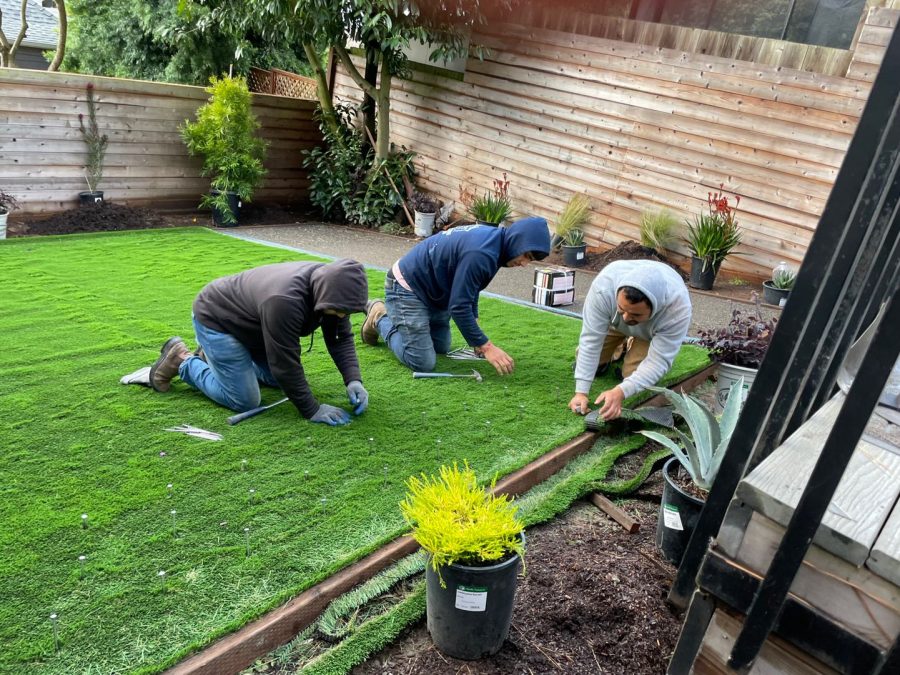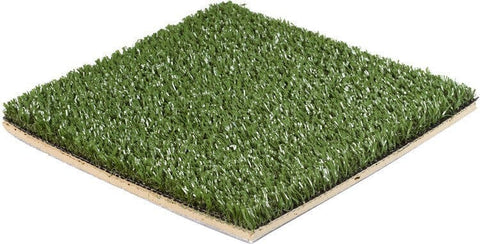Find Trusted Artificial Turf Companies Phoenix for Long-Lasting and Natural-Looking Grass
Find Trusted Artificial Turf Companies Phoenix for Long-Lasting and Natural-Looking Grass
Blog Article
Look Into the Environmental Benefits of Opting for Artificial Lawn Solutions
The fostering of artificial grass services provides an engaging possibility to resolve pressing ecological obstacles. By dramatically reducing water use and lessening the application of damaging chemicals, these alternatives not only advertise lasting landscaping but additionally secure local environments.
Water Preservation Advantages
Among one of the most significant advantages of synthetic grass is its ability to conserve water. Typical grass lawns require substantial watering, specifically in locations vulnerable to dry spell or water restrictions. On the other hand, synthetic grass does not require watering, dramatically lowering the total need for water sources. This attribute is particularly useful in arid regions where water scarcity is a pressing concern.
By getting rid of the requirement for regular watering, synthetic grass adds to lasting landscape practices and aids alleviate the environmental influence of excessive water usage. Additionally, the preservation of water prolongs to the decrease of runoff, which can bring about soil erosion and river pollution.
Additionally, the setup of synthetic grass enables property owners and districts to allocate water resources more efficiently, concentrating on crucial usages such as alcohol consumption water and farming. The change in the direction of synthetic grass not only advertises accountable water usage yet additionally straightens with broader ecological goals aimed at maintaining natural deposits.
As areas increasingly focus on sustainability, the water preservation advantages of fabricated lawn offer a compelling instance for its adoption in domestic and commercial landscape design jobs.
Minimized Chemical Usage
The shift to synthetic grass dramatically decreases the dependence on chemical therapies typically made use of in natural grass upkeep. Standard turf management generally entails the application of plant foods, pesticides, and herbicides to advertise development and control insects. These chemicals can present threats to human health, neighborhood wildlife, and the environment, adding to soil and water contamination.
In contrast, man-made lawn removes the need for these unsafe substances. By reducing the release of artificial substances right into the ecosystem, artificial grass advertises much healthier dirt and water systems.
In addition, the absence of chemical overflow related to fabricated lawn setups assists secure neighborhood rivers from air pollution, sustaining aquatic life and maintaining biodiversity. Arizona turf. As communities increasingly prioritize lasting practices, choosing synthetic grass offers a sensible remedy that straightens with ecological conservation goals. With this shift, homeowner can take pleasure in rich eco-friendly spaces without jeopardizing eco-friendly wellness, leading the way for an extra lasting future
Lower Carbon Footprint

Additionally, the installment of synthetic grass can result in considerable water conservation. Natural grass require considerable quantities of water for irrigation, which not only includes in the carbon impact related to water removal and treatment however likewise strains regional water sources. On the other hand, synthetic grass requires minimal maintenance, needing no watering, consequently significantly minimizing water use and its linked power costs.
Furthermore, the durability of synthetic grass contributes to its decreased carbon effect. With a life-span of approximately 15 years or even more, the need for frequent replacements is decreased, resulting in less waste and lower energy usage in production and throwing away standard yard choices. Overall, man-made lawn provides a sustainable option for ecologically mindful landscaping.
Habitat Preservation
Environment conservation is a critical factor to consider in the debate over landscape design selections, specifically when comparing synthetic turf to natural lawn. All-natural grass lawns usually call for substantial maintenance, including the use of plant foods, chemicals, and herbicides, which can detrimentally influence neighborhood environments. These chemicals can leach right into the dirt and waterways, damaging indigenous flora and fauna and interrupting local environments.
On the other hand, man-made grass presents a possibility to decrease the environmental impact of landscaping. By choosing synthetic yard, property owners can minimize the disturbance of natural environments connected with standard yard treatment practices. Synthetic grass click removes the requirement for unsafe chemicals, consequently protecting close-by wild animals and preserving the honesty of surrounding environments. The installation of fabricated turf can lead to the conversion of former lawn locations right into even more biodiverse landscapes, such as pollinator gardens or native plant areas, which can sustain local wildlife.
Ultimately, the shift to fabricated grass not only preserves water and reduces maintenance initiatives yet also promotes a much more harmonious relationship between human activities and the native environment, promoting habitat conservation while doing so.
Long-Term Sustainability
Lasting sustainability is an essential element in examining the benefits of synthetic grass over traditional lawn lawns. Among the most significant advantages of fabricated grass is its toughness; it can last as much as 15-20 years with marginal upkeep, whereas natural yard look at this web-site needs constant reseeding and replacement. This durability decreases the demand for continuous sources, such as water, fertilizers, and chemicals, which are necessary for maintaining a healthy turf yard.
Furthermore, synthetic grass contributes to a decrease in carbon emissions connected with lawn care tools. Conventional grass typically need gas-powered mowers, leaners, and blowers, all of which add to air contamination. Arizona turf. linked here On the other hand, fabricated grass removes the demand for such tools, promoting a cleaner atmosphere
In addition, the manufacturing of fabricated turf progressively makes use of recycled materials, enhancing its sustainability profile. As makers embrace environment-friendly techniques, the ecological impact of synthetic grass proceeds to diminish.

Verdict
The fostering of artificial lawn options offers substantial ecological benefits, consisting of significant water preservation, reduced reliance on dangerous chemicals, and a lower carbon footprint. Man-made grass aids in preserving natural environments by decreasing land disruption and promoting long-term sustainability through the usage of sturdy products. Collectively, these factors underscore the capacity of synthetic grass to contribute positively to environmental health and wellness and provide a viable choice to typical landscaping practices in an increasingly resource-conscious globe.
In contrast, artificial grass does not need watering, considerably reducing the total demand for water sources. By lessening the release of artificial compounds right into the community, artificial lawn promotes much healthier dirt and water systems.
In addition, the setup of artificial lawn can result in substantial water conservation. In contrast, man-made turf needs marginal upkeep, needing no watering, thereby dramatically decreasing water use and its linked energy prices.

Report this page